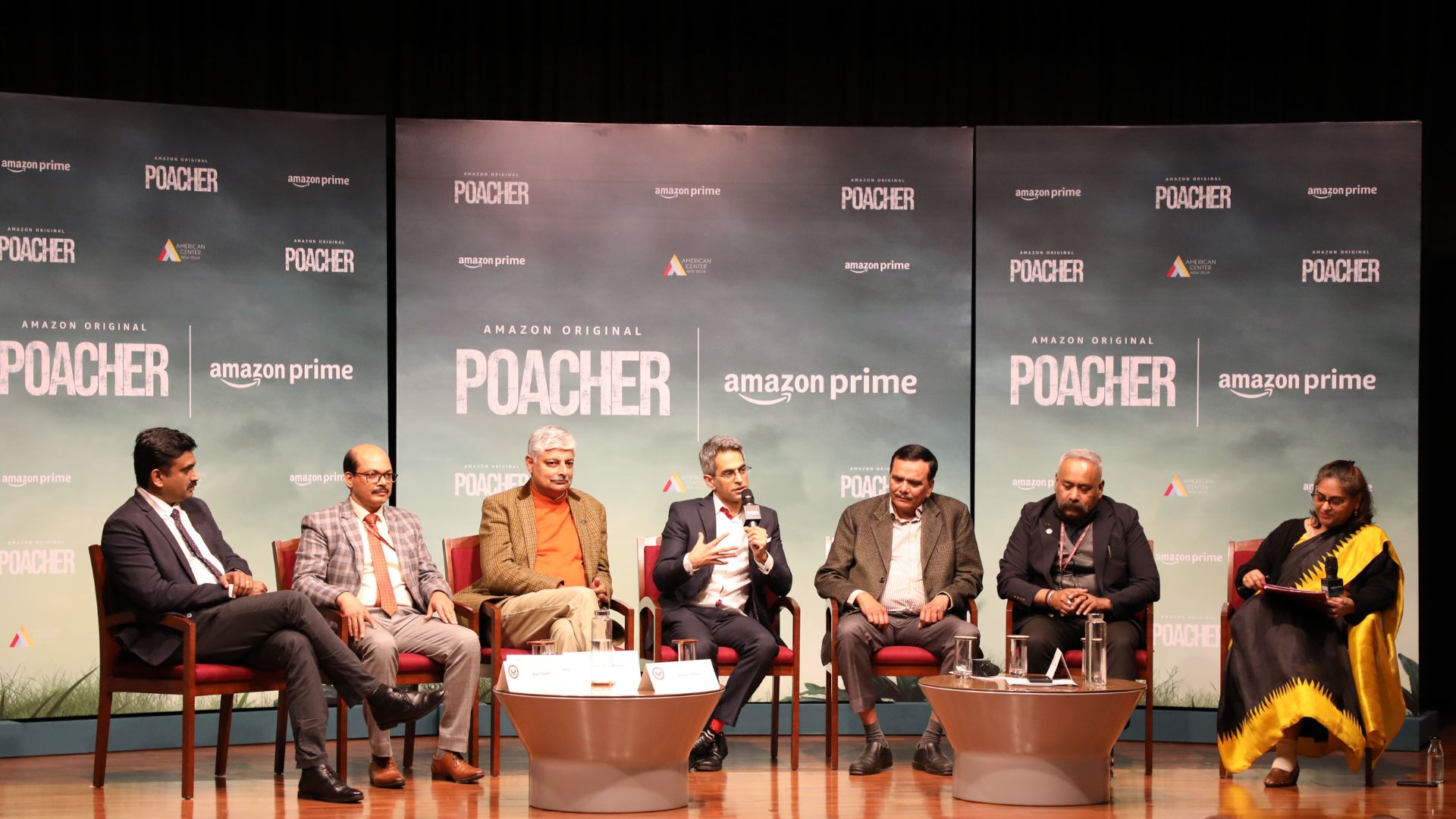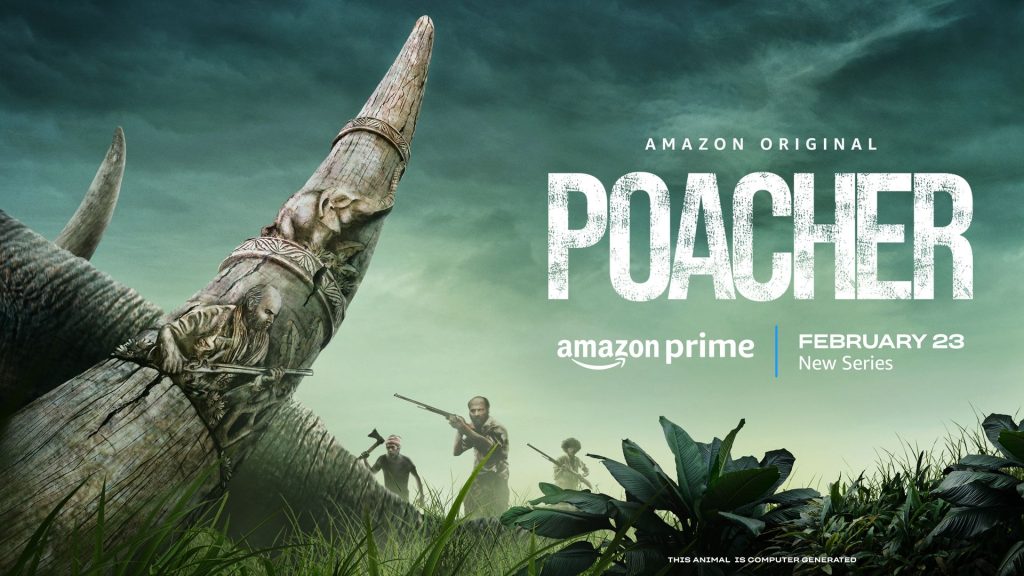Previewed at the American Center New Delhi, the series “Poacher” showcases the investigation into India's biggest illegal ivory poaching case.
April 2024

Richie Mehta (center) speaks at the preview screening of the first episode of “Poacher” at the American Center New Delhi. (Photograph by Rakesh Malhotra)
“Poacher,” an Amazon Original Series by Emmy Award-winning director Richie Mehta, is based on a two-year investigation into India’s biggest illegal ivory poaching case. The first episode of this series was previewed at the American Center New Delhi in February 2024. Over eight episodes, the series follows the teamwork of dedicated Indian forest officials, the Indian Wildlife Crime Control Bureau, and the Delhi-based NGO Wildlife Trust of India (WTI).
WTI is a recipient of grants from the U.S. Department of State Bureau of International Narcotics and Law Enforcement Affairs (INL) and United States Fish and Wildlife Service.
SPAN spoke to Mehta on the sidelines of the preview screening.
Excerpts from the interview.
What drew you to the story behind “Poacher”?
I was directing a documentary in 2015 titled “India in a Day,” in which people from all over India shot footage of their day and shared it with me. One of the pieces I received was of an ivory raid in Delhi. I called WTI, the NGO that submitted it, and they told me that the Kerala Forest Department had conducted India’s largest ivory bust in Delhi, following an investigation into a significant wildlife smuggling ring. I was flabbergasted. I knew that I couldn’t give the footage the context it deserved with the documentary, so I told Divya Bharadwaj at WTI that I would return and delve deeper into the case, and the issues it addresses, and do a full piece on it. “Poacher” is the result of that.
Tell us about the role real-life conservationists played in shaping your narrative, and about your collaboration with the WTI.
After the release of my series “Delhi Crime” in 2019, I got in touch with WTI Director Rupa Gandhi and volunteered to help conduct a workshop for local forest watchers on using mobile cameras to capture footage of elephants in wildlife corridors. After the workshop, Rupa introduced me to “wildlife crime fighters” Jose Louies and Vivek Menon. Jose introduced me to officers in the Kerala Forest Department who were leading the ivory poaching case. I met Surendra Kumar, member of the Indian Forest Service, Kerala’s former chief wildlife warden, the former principal chief conservator of forests, as well as the investigation in-charge at the time. Additionally, I met other incredible IFS officers. I also met one of the accused poachers in the case, which was truly eye-opening.
I realized that this wasn’t just about saving elephants from eradication; it addressed dozens of other issues. It touched upon our relationship with all other life forms on Earth, the indigenous peoples and how they are integrated with (or segregated from) society, the true nature of the “law of the jungle” (both the natural and asphalt one) and how it is deeply ingrained in us. It was a story resonating with everything I held dear, and it unfolded in the most thrilling, true-crime narrative I had ever encountered.

(Courtesy Amazon Prime Video)
What were the challenges of translating a real investigation into a captivating eight-episode series?
The simple answer is labor. I would meet people, ascertain their involvement in this investigation via extensive conversations or interviews, review court documents and transcripts, and then return home after weeks of this and sort out all the data in chronological order. I would then go back into the field and do it again, several times over. Throughout the process, I would see dramatic peaks in the real-life story—moments that lent themselves to mini-climaxes, shocking revelations and time-bound chases under pressure. All of them are thrilling to even relay verbally. But since I think in film and series format, I could see the structure falling into place, juxtaposed with what I felt was important to convey to people. This process of tightening the information and returning to the field continued for two years.
What message do you hope viewers will take away from the series regarding the consequences of human actions on endangered species?
By witnessing this story of people risking their lives to prevent species extinction, I hope viewers will connect the dots between motivations of these crime fighters and how it relates to us all in our day-to-day lives. I also hope viewers will be inspired—wildlife crime fighting is a very cool profession! And I hope viewers will question their own relationship with all living things, as I did while learning about this incredible world.
Click here to sign up for the free SPAN newsletter: https://bit.ly/SubscribeSPAN
Wonderful
K.krishna murthy
Wonderful